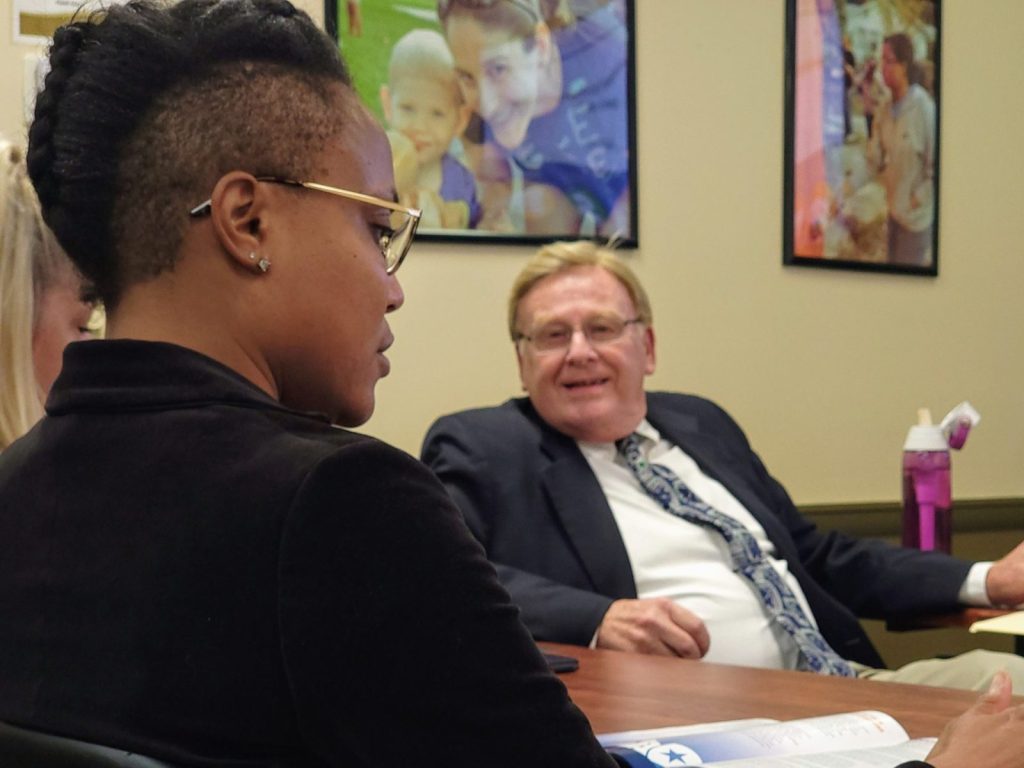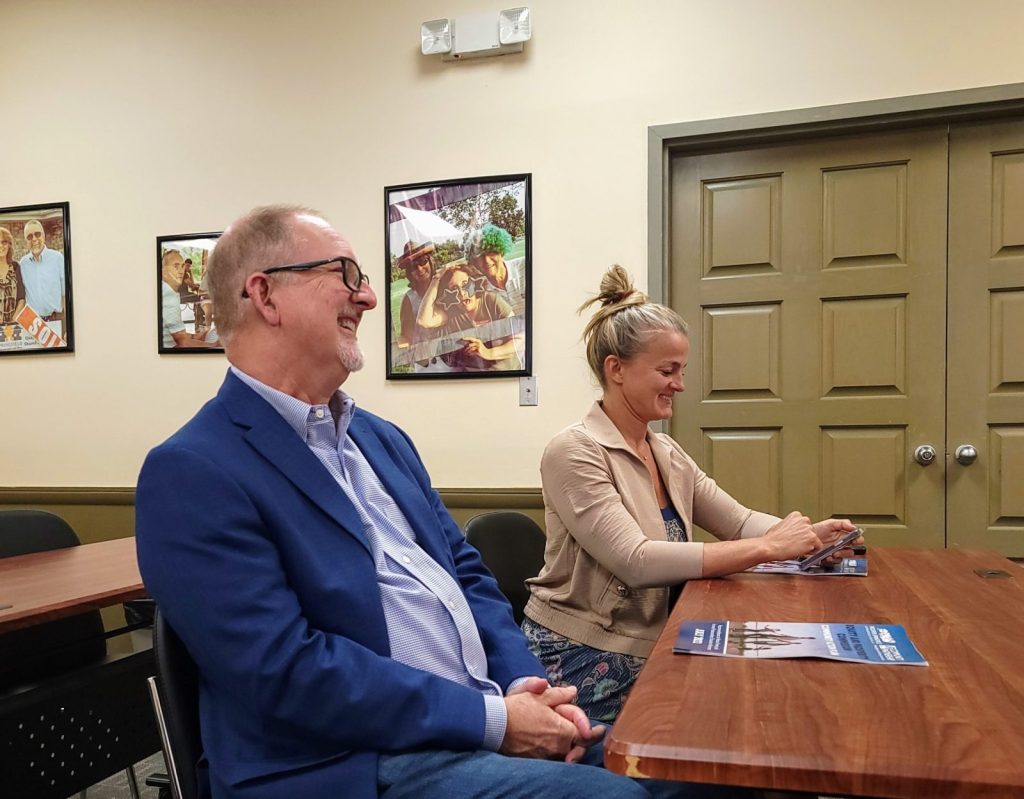Despite how it might feel to some who are experiencing challenges, Springfield’s poverty rate is going down.
According to information presented at a press conference Thursday, Springfield’s overall poverty rate was at 27.5 percent in 2015. Around that time, Springfield’s Impacting Poverty Commission set a goal to reduce the city’s poverty rate by 5 percentage points by 2025.
In 2021, the poverty rate reset with new U.S. Census data to 21.7 percent. So technically, Springfield met the commission’s goal earlier than expected.
Prosper Springfield, a collective-impact initiative formed with the goal of decreasing poverty in Springfield, used research and disaggregated data to identify other populations with high poverty rates. Based on that data, Prosper Springfield director Francine Pratt said Springfield is still about 1 percentage point away from hitting the Commission’s 5-percent reduction goal.
Still, Pratt announced that it’s time to set some new goals.
The new poverty rate reduction goals to meet by 2030 include:
- Decrease the poverty rate by 10 percentage points for individuals with disabilities, racial and ethnic minority populations and people with health disparities.
- Align with the Missouri Department of Higher Education and Workforce Development’s goals to increase post-secondary education attainment (education beyond high school) for all population groups to 60 percent, and to increase labor force participation for all groups to 70 percent.
Asked if Pratt viewed those goals as optimistic or realistic, Pratt responded, “Realistic.”

Springfield Mayor Ken McClure also spoke at the press conference.
“It’s very easy to get wrapped up in what we do on a daily basis and not always see the big picture, to step back and see what is going on,” McClure said, “and say, ‘Ya know, we are making progress.’”
“It seems so massive,” he said, referring to Springfield’s poverty problems. “But we are making good progress.”
Former city manager Greg Burris recalled when he helped form the Impacting Poverty Commission, the poverty rate in Springfield was trending up.
“Not only have we come down, we’ve stopped that upward trend,” Burris said. “That speaks well to what our community has done.”

Pratt handed out copies of the 2022 Equity and Prosperity Commission Community Action Plan at Thursday’s event, which was held at the Community Partnership of the Ozarks headquarters downtown.
Find the plan here.
Below are just a few key recommendations from the 27-page plan:
- Education: Coordinate with community leaders from private, public and social sectors to form a community coalition to lobby the state on how to spend COVID funding directed towards early childhood if the option is still feasible once these recommendations are finalized.
- Health: Work with the Springfield-Greene County Health Department to publicize health issues of primary concerns with action steps needed to address the concerns.
- Housing: Community leaders to work with city leaders to see if the Greene County charter can be reviewed to develop a “Housing Trust Fund” to support affordable housing projects.
- Jobs and economic climate: Develop a campaign for employers to connect with organizations who have financial literacy programs for employers to have financial literacy workshops at the worksite.
- Transportation: Develop a recognition plan to promote programs like empower: abilities, who work with restaurants to make them more accessible and recognize the businesses.
- Public safety: Community and city leaders should discuss concerns expressed from some community members regarding reassessment of the Police Civilian Review Board for the appropriate entity to make recommendations to the City Council and Mayor.
To learn more, visit prosperspringfield.org.

